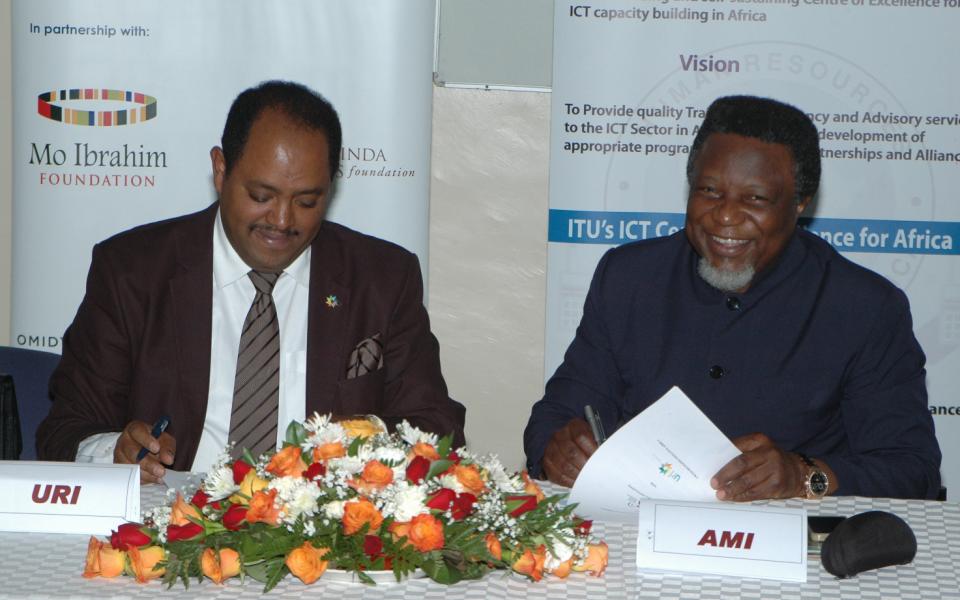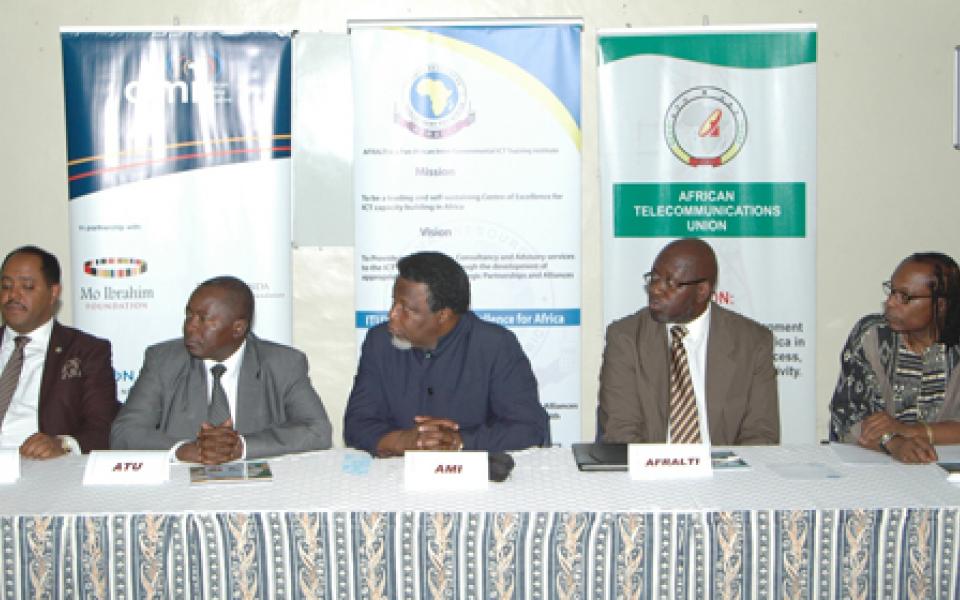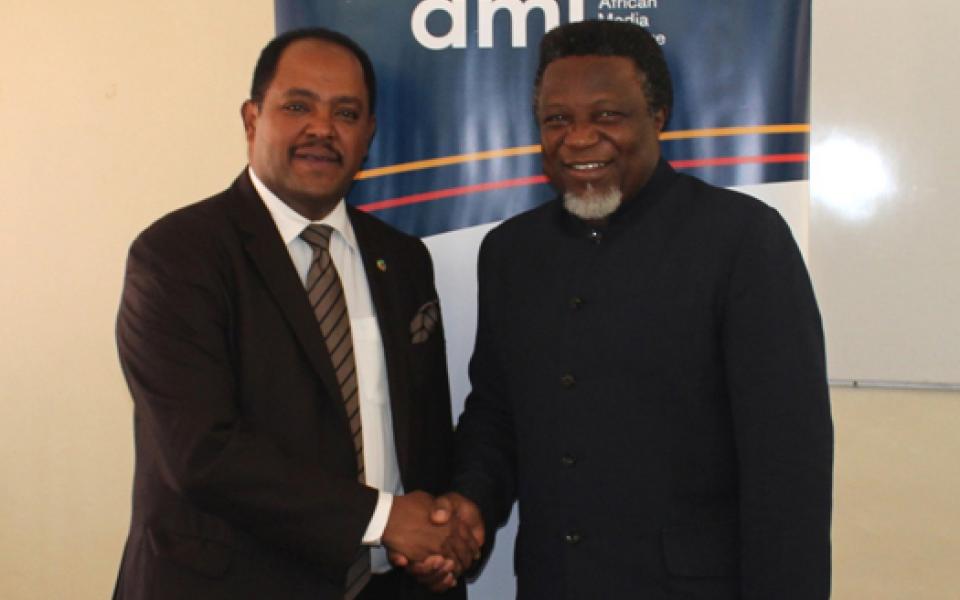
Ambassador Hailu Mussie Continental Director for URI-Africa with AMI CEO Eric Chinje
Nairobi, Kenya – The African Media Initiative (AMI) and United Religions Initiative – Africa (URI) have signed a Memorandum of Understanding to counter violent extremism, radicalization and terrorism in Africa and to combat hatred, prejudice, intolerance and stereotyping on the basis of religion and culture. The agreement will strengthen the media sector in Africa to ensure and enhance the working partnership on the continent between media, religious leaders and faith-based organizations to promote a culture of peace, inter-religious and intercultural constructive dialogue and harmony.
The partnership calls for:
- The establishment of Departments of Peace in each African country
- The establishment of the African Editors-in-Chief Forum to promote a culture of peace
- Promotion of peace education in Africa as part of the school curriculum
- Promotion of the African Union Interfaith Dialogue Forum
- Promotion of the teaching of the Golden Rule “Treat others the way you want to be treated”
- To campaign against hate speech in Africa
- To engage leaders, journalists, bloggers, writers, poets, cartoonists and citizens in Africa and across the globe, with the aim of bringing the media and the public’s attention to the devastating effects of hate speech
“It is indeed a great pleasure for URI – Africa to join hands with AMI to promote ethical, tolerant and inclusive journalism, good media governance and responsible communications free from hate speech,” says Ambassador Mussie Hailu, Continental Director of URI Africa and Representative at the UN in Nairobi, ECA, UNEP and African Union. “The working partnership established will help combat hatred, prejudice, intolerance and stereotyping on the basis of religion, ethnicity or culture which represents a significant challenge to peaceful co-existence in Africa. We need to promote the teaching of the Golden Rule: “treat others the way you want to be treated” more than ever as it is a practical action and a road map to prevent hate speech and promote human dignity and a culture of peaceful co-existence among people of different religions, cultures and ethnicities,” he adds.
On the occasion of the signing ceremony, Amb. Hailu also appealed to journalists not to cover hateful speech coming from politicians or community and religious leaders and called for media leaders and operators in Africa to lend their full support to efforts to turn the tide against the rise of hate speech on the continent.
“I couldn’t think of a better partner than the inter-religious organization represented by URI-Africa to address the radicalization, violent extremism, and conflict issues we currently face on this continent,” says AMI CEO Eric Chinje. “We want to deepen the reporters’ understanding of hate speech and of the issues of peace and conflict, religious violence and the fight that’s occurring in places like Nigeria and Cameroun, with Boko Haram, or Kenya with Al Shabbab.”
The two organizations have begun work already by partnering to organize the World Interfaith Harmony Week celebration held at the Desmond Tutu Centre in Nairobi last weekend under the theme “Beyond Our Differences.” The event gathered a host of youth as well as religious leaders and practitioners from a number of religious organizations and spiritual traditions to discuss the challenges of religious intolerance, ethnic conflict and terrorism in Africa and how media covers those topics.


For more information on the project and to arrange interviews with African Media Initiative officials, please contact Justus Machio Tel: +254700857024 or Email: [email protected]
About AMI
AMI is the continent’s largest umbrella association of African media owners, senior executives and other industry stakeholders. AMI’s mandate is to serve as a catalyst for strengthening African media by building the tools, knowledge resources and technical capacity for African media to play an effective public interest role in their societies. This mandate includes assisting with the development of professional standards, financial sustainability, technological adaptability and civic engagement.
